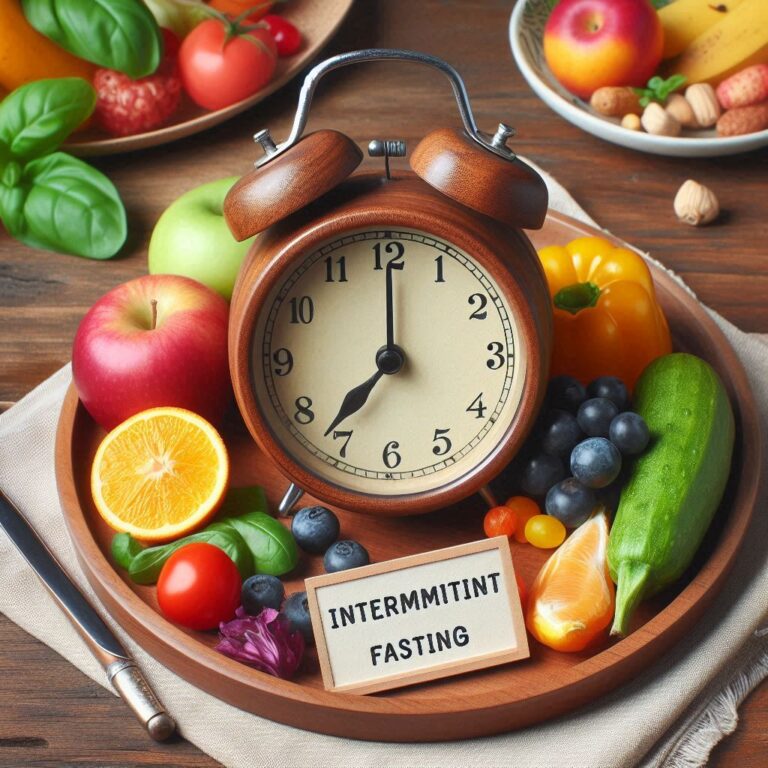What Is The Benefit Of Intermittent Fasting
Today, we will discuss “what is the benefits of intermittent fasting”. You might have heard much about it lately, for a good reason. It’s not just another diet fad; it’s a practice with deep historical roots and a range of health benefits that are becoming more recognized in today’s wellness culture.
Several popular methods include the 16/8 approach, which allows eating within an 8-hour window and fasting for 16 hrs, or the 5:2 method, which entails eating normally for five days and reducing the calorie intake for two non-consecutive days each week.
Now, why am I talking about this? In a world of complex diets and nutritional advice that often seems contradictory, intermittent fasting offers a simplified approach grounded in science and history. Many societies have practiced fasting for millennia due to its supposed physical and spiritual benefits—and now, modern science is starting to catch up.
In this article, you will learn about the benefits of intermittent fasting. From the potential to manage your weight to the role it might play in disease prevention, I’ll delve straight into what makes this practice worthwhile beyond its trendy facade.

Exploring the Health Benefits of Intermittent Fasting
Intermittent fasting isn’t just a passing trend; it’s a practice deeply embedded in human history, now backed by modern science. This isn’t about depriving yourself but optimizing your body’s innate processes. Here are the perks that might make you consider giving it a try.
One of the most talked-about benefits is weight management. It’s simple in theory: with fewer hours dedicated to eating, you may naturally consume fewer calories, which leads to weight loss. But the science goes more profound, and studies show that fasting can increase the body’s responsiveness to insulin, which regulates blood sugar, reducing the risk of obesity.
I will touch on a benefit that pays dividends for your long-term health: fasting promotes cellular repair. When we give our digestive system a break, our bodies turn to maintenance. They start autophagy, a process where cells recycle unwanted components, helping stave off the effects of aging and disease.
Here’s something for brain health enthusiasts: fasting is linked to improved brain function. There’s a lot of opportunity to harness fasting not just for our waistlines but also for our mental clarity. The brain utilizes ketones produced during fasting for fuel, which can lead to increased neuroprotective benefits and may even slow cognitive decline.
For those concerned about heart health, fasting might be a heart’s best friend. Integrating fasting has been associated with lower cholesterol levels, reduction in inflammatory markers, and lower blood pressure, all key players in heart disease.
Now, shifting gears towards practical application, you’re probably thinking, ‘How do I get started with intermittent fasting, and what’s the right approach for me?’ That will include finding a fasting method that fits your lifestyle, learning to manage hunger pangs, and ensuring you get a nutrient-rich diet during your eating phases. And don’t worry too much about perfection; it’s about finding what works for you.

Practical Guide to Integrating Intermittent Fasting into Your Lifestyle
If intermittent fasting has piqued your interest, you’re probably wondering how to incorporate it into your daily life. Well, I’m here to help you with that. It all starts by selecting a fasting method that goes with your health and lifestyle goals. Whether it’s the 16/8 method, the 5:2 approach, or another protocol, there’s flexibility to match your unique situation.
Starting, you want to ease into fasting gently to allow your body and mind to adapt. You don’t need to jump into the deep end immediately; beginning with a shorter fasting period and gradually increasing the duration can help mitigate initial discomfort. And remember, hydration is critical, so keep up your water intake!
Managing hunger is another vital aspect to consider. On fasting days, keep busy and consider planning your fasting period to coincide with your sleep schedule to make it less daunting. And during eating windows, focus on nutrient-dense foods to maximize satiety and nutritional intake.
Of course, exercise is a fantastic complement to intermittent fasting, enhancing the benefits you’re working toward. Whether it’s a fast walk or an intense gym exercise, find an activity that you enjoy and that fits your energy levels.
Before you start intermittent fasting, discussing it with a healthcare professional is a good idea, especially if you have underlying health concerns. The Healthcare Professional can tailor advice to your needs and help you navigate potential risks.
Hearing from others who’ve seen success with intermittent fasting can be incredibly motivating. Look for community forums, blogs, or local groups where people share their experiences and tips. These stories can inspire and guide you through your fasting journey.
If you found this blog post interesting, check out my other post on How To Create a Blog For Passive Income.
Engage with Me!
Ask Questions: Suppose you have any questions about the benefits of intermittent fasting. Please leave them in the comments below. Thank You!








Hello. I’ve been doing intermediate fasting for several months now. I let myself eat breakfast just because I work out a lot so I like to get as much protein as I can. But I don’t eat from 6:00 in the morning until 4:00 p.m. and then I have basically a 5-hour window where I eat from 4:00 to 9:00. My body seems to love it.
Hi Jake,
That’s awesome! I’ve also been intermittently fasting for a while, and I love it. One of the best things about intermittent fasting is its flexibility—you can change the method to fit your lifestyle perfectly and make it work. It’s great that you’ve found a schedule that works well for you, especially with your workout routine. Your 5-hour eating window sounds effective, and it’s fantastic.
Keep it up!
Take care,
Michael